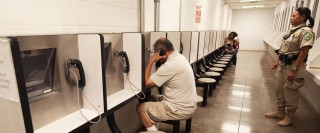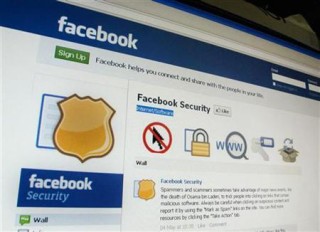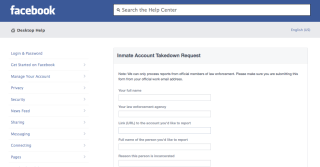History
Everett Parker
Everett C. Parker played a leading role in the development of public interest of American television. He served as director of the Office of Communication of the United Church of Christ from 1954 until 1983. In that position, he was at the forefront of Protestant communications, overseeing the public media activities of one of the leading mainline Protestant religious groups. He is better known, however, for two other contributions: his leadership in the development of an influential media reform and citizen action movement in broadcasting; and his activism directed at improved broadcast employment prospects for women and minorities. Near the end of his career, he was named one of the most influential men in broadcasting by the trade publication Broadcasting Magazine.
Parker had an early career in radio production. After a year at NBC in New York, he founded and became head of an interdenominational Protestant Church broadcasting organization, the Joint Religious Radio Committee (JRRC). The JRRC was formed to serve as a counterbalance to the dominance of the Federal Council of Churches in public service religious broadcasting. Besides its impact on programming, the JRRC also addressed the impact of media on society and public interest issues in broadcasting. The JRRC was an early vocal supporter of reserved FM frequency assignments for educational use, for example.
From 1945 until 1957, Parker was a lecturer in communication at Yale Divinity School, and from 1949 until 1954, he also headed the Communication Research Project, the first major study of religious broadcasting. This project resulted in the definitive work on religious broadcasting for nearly two decades, The Television-Radio Audience and Religion, co-authored by Parker, David Barry and Dallas Smythe.
In 1954, he founded the Office of Communication of the United Church of Christ, the first such agency to combine press, broadcasting, film, research, and educational functions in one unit. The office pioneered programs to improve the communication skills of ministers, to improve the communication activities of local churches, and to use television for education. It also participated in the production of some landmark television programs, including Six American Families, a nationally-syndicated documentary series produced in collaboration with Westinghouse Broadcasting Company and the United Methodist Church.
The work of Parker and the Office took an important turn in the 1960s, as the civil rights movement was gaining momentum. After reviewing the civil rights performance of television stations in the South, the Office identified WLBT-TV in Jackson, Mississippi as a frequent target of public complaints and Federal Communication Commission (FCC) reprimands regarding its public service. In 1963, the Office filed a “petition to deny renewal” with the FCC, initiating a process that had far-reaching consequences in U.S. broadcasting. The FCC’s initial response to the petition was to rule that neither the United Church of Christ nor local citizens had legal “standing” to participate in its renewal proceedings. The UCC appealed, and in 1966, Warren Burger, then a Federal appeals court judge, granted such standing to the UCC and to citizens in general. After a hearing, the FCC renewed WLBT’s license, resulting in another appeal by the UCC. Burger declared the FCC’s record “beyond repair” and revoked WLBT’s license in 1969.
Based on this new right to participate in license proceedings, Parker’s office began to work with other reform and citizens’ groups to monitor broadcast performance on a number of issues, including employment discrimination and fairness. In 1967, the Office’s petition to the FCC dealing with employment issues lead to the Commission’s adoption of Equal Employment Opportunity (EEO) rules for broadcasting. In 1968, it participated as a “friend of the court” in the landmark Red Lion case, which confirmed and expanded the Fairness Doctrine.
Parker and the Office continued to play a central role in the developing media reform movement throughout the 1970s and 1980s in cooperation with organizations such as Citizens’ Communication Center, the Media Access Project, the National Citizens’ Committee for Broadcasting, Ralph Nader’s Public Citizen organization, and a variety of other religious and civic groups. The attention of this movement broadened in subsequent years to include cable television and telecommunications and telephone policy. These organizations became active in the developing change in regulation and eventual break-up of AT and T during the period from 1978 to 1984.
In his later years, Parker devoted more attention to issues of employment in broadcasting and the communication industries. In 1974 he established Telecommunications Career Recruitment, a program for the recruitment and training of minority broadcasters, with the cooperation and support of the Westinghouse Broadcasting and Capital Cities Broadcasting companies.
On his retirement in 1983, Broadcasting Magazine somewhat grudgingly hailed him as “the founder of the citizen movement in broadcasting” who spent “some two decades irritating and worrying the broadcast establishment.” In retirement, Parker took up a post at Fordham University in New York at a center named for his friend and colleague, Don McGannon, long-time president of Westinghouse Broadcasting Company.
Recent Blog Posts

Letter to the Congressional Oversight Committee
March 16, 2015 Rep. Jason Chaffetz Chair of the House Oversight & Gov’t Reform 2157 Rayburn HOB Washington, DC 20515 Rep. Elijah Cummings Ranking Member of theHouse Oversight & Gov’t Reform 2157 Rayburn HOB Washington, DC 20515 Dear Chairman Chaffetz and Ranking Member Cummings: As racial justice and civil rights organizations, we write to express our […]

As Jail Visits Go High-Tech, Isolation Grows
The following is an excerpt from NBC News. Twice a week, Ashika Coleman-Carter drives out to the Travis County Correctional Complex, in Texas, to visit her husband. But when she sits down to say hello, she doesn’t look at him through the traditional shatter-proof glass. Instead, she sees Keith’s face on a video screen. “It […]

Balancing the Harms and Benefits of Electronic Prisoner Communication
The following is an excerpt from Equal Future. In South Carolina, inmates face up to two years in solitary confinement for making just one post to Facebook. It’s one stark frontier in an ongoing battle over the pros and cons of cell phone and internet access in prisons. Many inmates are prohibited from using cell […]

Hundreds of South Carolina Inmates Sent to Solitary Confinement Over Facebook
The following is an except from EFF’s Deeplinks Blog. In the South Carolina prison system, accessing Facebook is an offense on par with murder, rape, rioting, escape and hostage-taking. Back in 2012, the South Carolina Department of Corrections (SCDC) made “Creating and/or Assisting With A Social Networking Site” a Level 1 offense [PDF], a category […]